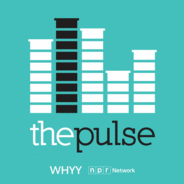What's the best educational setting for my child to learn and grow? It's a question many parents contemplate, but it's an especially difficult question for parents of autistic kids. We explore the often unseen challenges these kids face at school, the battles parents face advocating for change, and what experts say could actually make a difference.Learn more about sponsor message choices: podcastchoices.com/adchoicesNPR Privacy Policy

Wissenschaft & Technik
The Pulse Folgen
Go on an adventure into unexpected corners of the health and science world each week with award-winning host Maiken Scott. The Pulse takes you behind the doors of operating rooms, into the lab with some of the world's foremost scientists, and back in time to explore life-changing innovations. The Pulse delivers stories in ways that matter to you, and answers questions you never knew you had.
Folgen von The Pulse
177 Folgen
-
Folge vom 20.09.2024Navigating Autism in School
-
Folge vom 13.09.2024What It Takes to Treat Serious Mental IllnessWe explore what it takes to recover from serious mental illness, with stories about how a patient's decades-long relationship with his psychiatrist helped him overcome severe depression, how a new crisis response program balances safety with providing help to those experiencing mental health emergencies, and how Patrick Kennedy went from politician to mental health advocate.Learn more about sponsor message choices: podcastchoices.com/adchoicesNPR Privacy Policy
-
Folge vom 06.09.2024The Healing Power of MusicYou've heard that music is the language of the soul — but could it also be a treatment for the body? On this episode, we explore some of the latest science on the healing power of our favorite tunes, from how they affect our brains, to why they improve our workouts, to the promise they show in treating illnesses like epilepsy and Parkinson's.Learn more about sponsor message choices: podcastchoices.com/adchoicesNPR Privacy Policy
-
Folge vom 03.09.2024What Teeth Tell us About Survival on EarthZoologist Bill Schutt argues that teeth were pivotal to the success of vertebrate animals, they're power tools for survival. His latest book is "Bite: An Incisive History of Teeth, from Hagfish to Humans." On this podcast extra, Schutt explains why teeth are key to understanding evolution; the controversy over fluoride in water; and why people once thought decay was caused by tooth worms.Learn more about sponsor message choices: podcastchoices.com/adchoicesNPR Privacy Policy
